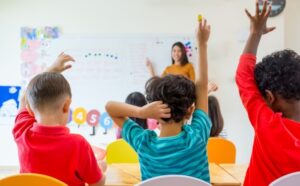People often take early childhood education for granted, even though it has been proven to be one of the most important phases of human development. Some might be unaware that the things learned in the early years are what will shape children into becoming adults.
Children in their early years often follow a predetermined development sequence – crawl, walk, talk, etc. However, once children start to mature into adults, development takes on a more personalized order. During these years, children are developing their own personalities, and might excel in one area more than the other.
Child development goes beyond just the physical – there is also the social, emotional, and mental aspect. All these play a part in shaping the adult a young child will grow up to be.
What is Early Childhood Education?
Early childhood education, quite simply put, is education designed for children aged between 3 and 5. Some areas refer to it as nursery school, daycare or preschool, but the goal is the same – to prepare children for elementary education. More information regarding the topic you can find preschool websites for parents.
Think of early education much like a special training, but for younger children. The time spent in class will expose children to situations and tasks which will help develop their social, cognitive, physical, and emotional skills. When early education is done right, it lays the foundation for a lifetime of learning in children.
There are many benefits that come with early childhood education, some of which are;
- Love for Education
Children will begin to appreciate and hunger for more knowledge. Once they are taught to love learning at this stage, the desire will stay with them for their lifetime. Educators can use kindergarten math worksheets to help children practice what they learn.
- Socialization
Human beings are social by nature, and early childhood is where socialization begins in earnest. Classrooms are organized safe spaces for young children to meet and interact with their peers. This is a great opportunity for children who might have been previously exposed to just their family. Children will quickly overcome shyness, and build the confidence they need to try out new things.
Among the things children will learn as they socialize are; sharing, team work, cooperation, kindness, friendship, respect, and other things.
- Concentration and Resilience
It is important to develop resiliency as early as possible, in a fast-changing environment. As children make attempts and fail at tasks, it is important that they learn from those mistakes and strategize on ways to complete the task without making same mistakes.
Children will also apply some levels of concentration while they perform preschool exercises. Repetition will help them improve on how well they can perform.
- Exposure
While children could easily learn at home the same things they learn in school, the major thing they would be missing out is that exposure to the diversity in the world. In school, children will meet their peers from different backgrounds, with different physical appearances, and they will learn to accept that diversification is something to appreciate.
Every experience and new word a child encounters in their young age works to shape them into the adults they will become. Studies have revealed the importance of early childhood education, and it is up to parents to ensure that their children start off early, and get the best quality education.

